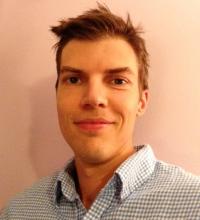Summary:
Bob Hartman uses more than three decades of experience in software, working in nearly every position imaginable, to express the need for team members to value all coworkers equally. In this quick interview, Bob explains his "holistic" approach to accomplishing effective and enjoyable collaboration.Noel: You've stated the need for "radical" management that "changes the culture of an organization." How is this accomplished, and what has happened to some cultures that warrant the need for that kind of change?
Bob: Changing culture is very difficult. In my mind, it requires two things in order to succeed. The first is to change how we think. Our thinking is primarily driven by what we value. Most organizations tend the value the wrong things. So in order to change culture the values need to be more aligned with customer success which will then drive organizational success. Secondly, to change culture, results must change. To me, a company's culture is a result of all of their previous results. When results become more positive based on different values, the effect will grow over time and become part of a new culture. To sum this up, culture changes slowly and requires the organization to actually live according to appropriate values. During my upcoming Agile Development Conference session on radical management, I will be exposing typical old values and how they transform into more effective values that drive real success for the long-term.
Noel: In your bio, it states that you take a "holistic view" of software development. What does that entail, and how did you decide on that approach?
Bob: My "holistic view" is most easily explained by saying I believe every part of software development is equally important. Too many organizations believe development is more important than testing. They may even believe project management trumps both. I've been in every role possible in a software organization. That experience forced me to recognize the value each group brings. Because I had all of those perspectives as part of my experience, I've always tried to make sure all areas completely understand the value of the other areas.
When organizations value every part of software development, the results improve. Everyone cares more, everyone interacts more, everyone helps more, and everyone is more empowered to do the right thing. This leads to a new way of working which allows everyone to take pride in their work.
Noel: You present a session that deals with using games to solve problems created by unsuccessful collaboration. What are some of the causes of "collaboration gone bad" and what are some of the easiest ways to spot where it's being done incorrectly?
We've all seen collaboration gone bad. The most common being the prioritization of work. The word prioritization has lost all meaning in the software world because everything is always priority #1. This can't be true, but it is a natural effect of not being able to collaborate and come to consensus. Collaboration gone bad can be based on how we try to collaborate. For example, doing everything via email is not collaboration. To me, collaboration needs to be more real-time in nature.
Another example of collaboration gone bad is a large group having a conversation about solving a problem, but not having any way to focus their efforts on achieving a win-win situation. This can occur when groups just try to push their viewpoint through no matter what. Effective collaboration requires everyone trying to achieve the win-win scenario, not an I-win/you-lose scenario.
 Bob Hartman’s logic-based approach to development and quality was honed early in his now more than thirty-year software development career. Bob has acquired wide-ranging industry knowledge by working as a software developer, tester, product manager, project manager, development manager, and executive. During the past ten years, he has grown from being an early adopter of agile to his current status as a Certified Scrum Trainer and Coach.
Bob Hartman’s logic-based approach to development and quality was honed early in his now more than thirty-year software development career. Bob has acquired wide-ranging industry knowledge by working as a software developer, tester, product manager, project manager, development manager, and executive. During the past ten years, he has grown from being an early adopter of agile to his current status as a Certified Scrum Trainer and Coach.


